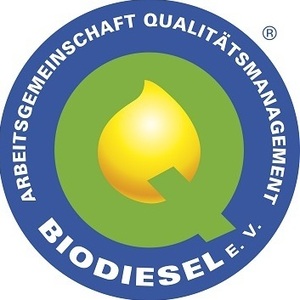Registration opens for 2017 no-harm test of biodiesel stabilizers

September 15, 2017
BY Ron Kotrba
Germany’s biodiesel quality management association AGQM has opened registration for its latest round of no-harm tests on oxidation stabilizers for biodiesel.
The European diesel fuel standard EN 590 allows up to 7 percent biodiesel to be blended in on-road diesel fuel. The biodiesel used must meet requirements laid out in the biodiesel fuel standard, EN 14214, which includes an oxidation stability requirement of eight hours in an accelerated test. Stabilizer additives are often used to achieve this.
The no-harm tests ensure these additives do not cause negative interactions with the fuels. This will be the 12th such no-harm test for biodiesel oxidation stabilizers used in on-road diesel fuel conducted by AGQM, in cooperation with the petroleum industry. AGQM also performs no-harm tests of stabilizers for biodiesel-blended heating oil.
All biodiesel stabilizers that have passed the two tests can be found in two no-harm lists on AGQM’s homepage.
Advertisement
Registration is open until Oct. 15.
Advertisement
Related Stories
President Joe Biden on Sept. 9 joined leaders of India, Argentina, Brazil, Italy, Mauritius and the United Arab Emirates to launch the Global Biofuels Alliance. The launch took place on the sidelines of the G20 Summit in New Delhi.
Neste is disputing a report filed with the USDA that suggests the company may have received fraudulent used cooking oil (UCO) volumes at its renewable products refinery in Singapore, specifically virgin palm oil from Indonesia.
Members of the European Parliament (MEPs) on Sept. 13 approved a new law that ramps up requirements for sustainable aviation fuel (SAF) within the European Union but sets limits on what types of feedstocks that fuel can be made from.
Clean Fuels outlook predicts growing supplies of used cooking oil
Global used cooking oil (UCO) supplies are anticipated to rise from 3.7 billion gallons in 2022 to between 5 billion and 10 billion gallons by 2030, according to a report released by Clean Fuels Alliance America on Sept. 13.
VARO Energy on Sept. 7 announced the construction of a large-scale sustainable aviation fuel (SAF) manufacturing facility at the Gunvor Energy Rotterdam site, investing $600 million with the aim of helping its airline customers decarbonize.
Upcoming Events










